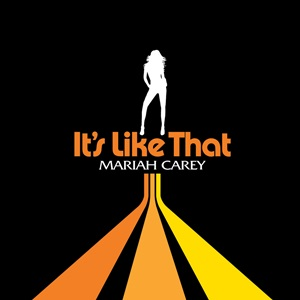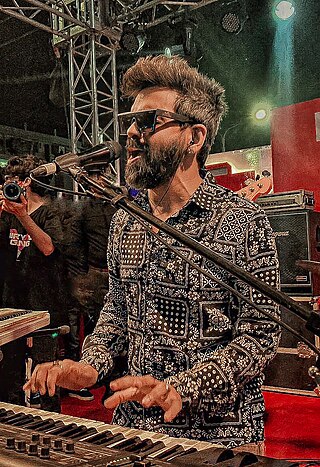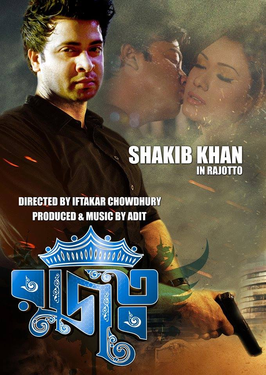
Malayalam cinema is the segment of Indian cinema dedicated to the production of motion pictures in the Malayalam language, which is widely spoken in the state of Kerala and Lakshadweep islands of india. Malayalam cinema includes the commercial film industry, sometimes known as Mollywood, as well as independent cinema made in Malayalam. According to recent trends and critical acclaim, the Malayalam film industry (Mollywood) is often considered the "best" film industry in India, known for its high quality storytelling, strong performances, and focus on social issues, even though the largest film industry in terms of viewership remains Bollywood
The film industry or motion picture industry comprises the technological and commercial institutions of filmmaking, i.e., film production companies, film studios, cinematography, animation, film production, screenwriting, pre-production, post-production, film festivals, distribution, and actors. Though the expense involved in making film almost immediately led film production to concentrate under the auspices of standing production companies, advances in affordable filmmaking equipment, as well as an expansion of opportunities to acquire investment capital from outside the film industry itself, have allowed independent film production to evolve.

The Weird Al Show is an American television show hosted by "Weird Al" Yankovic. Produced in association with Dick Clark Productions and taped at NBC Studios, it aired on Saturday mornings on CBS. The show ran for one season, from September 13 to December 6, 1997, with reruns airing until September 26, 1998. The show was released on DVD on August 15, 2006.

"It's Like That" is a song by American singer Mariah Carey from her tenth studio album, The Emancipation of Mimi (2005). Written by Carey, Jermaine Dupri, Fatman Scoop, Manuel Seal, and Johntá Austin, and produced by Carey and Dupri, the song borrows the hook "It's Like That Y'all" from the Run–D.M.C. tracks "Hollis Crew" and "Here We Go (Live)". Several other tracks were contenders for the album's lead single. However, plans were changed when Island Def Jam Music head L.A. Reid suggested to Carey she record a few more strong songs to ensure the album's success, thus "It's Like That" was written and chosen as the album's lead single, being released on January 25, 2005.

"Lose Control" is a song by American rapper Missy Elliott featuring American singer Ciara and American hip hop artist Fatman Scoop. It was released as the lead single from Elliott's sixth studio album, The Cookbook, on May 23, 2005. It contains samples from Hot Streak's "Body Work" and Cybotron's "Clear". The song peaked at number three on the Billboard Hot 100 in the United States, number two in New Zealand, and in the top thirty in various countries.

Gulshan Kumar Dua, was an Indian film and music producer and businessman who was the founder of the Super Cassettes Industries Private Limited music label in the Bollywood industry. After founding T-Series in 1983, Dua established it as a leading record label in the 1990s.

Habib Wahid is a Bangladeshi music composer and singer. He is the son of composer Ferdous Wahid. Habib gained prominence in the early 2000s with his unique fusion of traditional Bangladeshi folk music and contemporary pop elements, earning him widespread acclaim in the country. He is considered as one of the core pioneers of modern pop in Bangladesh.

Abdur Razzak, known as Razzak, was a Bangladeshi actor and film director. He was dubbed Nayak Raj Razzak, a term introduced by Ahmed Zaman Chowdhury, editor of the magazine Chitrali. Razzak won the Bangladesh National Film Award for Best Actor five times for his roles in the films Ki Je Kori (1976), Ashikkhito (1978), Boro Bhalo Lok Chhilo (1982), Chandranath (1984) and Jogajog (1988). He was awarded the Independence Day Award in 2015 by the Government of Bangladesh. He acted in more than 300 Bangladeshi and Indian Bengali and Urdu films and also directed 16 films. He is considered one of the greatest actors in Bangladeshi film industry.

The film industry of Pakistan, consisting of motion pictures, has had a large effect on Pakistani society and culture since the nation's independence. Pakistani cinema is made up of various sub-industries, including Lollywood, which makes motion pictures in Urdu and Punjabi. Lollywood is one of the biggest film industries in the country.

The Cinema of Bangladesh, also known as Bangla cinema, is a diverse and vibrant entity, consisting of films produced across various regions in Bangladesh, each contributing its unique linguistic and cultural perspective. Beyond the dominant Dhaka based Bengali-language film industry Dhallywood, which is a portmanteau of "Dhaka" and "Hollywood", Bangladesh is home to cinema in several other languages and dialects. For instance, Chakma cinema from Bandarban, Garo cinema from Sherpur, Meitei and Sylheti cinema from Sylhet, Chatgaiya cinema from Chattogram. These regional cinemas play a crucial role in preserving and promoting the linguistic and cultural heritage of the country. The dominant style of Bangladeshi cinema is melodramatic cinema, which developed from 1947 to 1990 and characterizes most films to this day. Cinema was introduced in Bangladesh in 1898 by the Bradford Bioscope Company, credited to have arranged the first film release in Bangladesh. Between 1913 and 1914, the first production company, Picture House, was opened. A 1928 short silent film titled Sukumari was the first Bengali-produced film in the region. The first full-length film, The Last Kiss, was released in 1931.

Suresh Productions is an Indian film production and distribution company known for its works in Telugu cinema. It is established in 1964 by D. Ramanaidu. It is one of India's largest film production companies with over 50 years of experience. The production house is located in Ramanaidu Studios, Hyderabad.

Tamil cinema is the segment of Indian cinema dedicated to the production of motion pictures in the Tamil language, the main spoken language in the state of Tamil Nadu. It is nicknamed Kollywood, a portmanteau of the names Kodambakkam, a neighbourhood in Chennai, and Hollywood.

"Be Faithful" is a song performed by American hip hop artist Fatman Scoop, featuring and produced by American hip hop duo the Crooklyn Clan. The song was released in March 1999, becoming a minor hit in the United States. A second release in October 2003 gained the song wider international success. "Be Faithful" topped the charts in the UK and Ireland in 2003, and peaked within the top 10 of the charts in Australia and Denmark. The song was featured in the trailer for the film The Best Man and later in the 2001 film Save the Last Dance.

SVF Entertainment Pvt. Ltd. is an Indian film production and distribution company, founded by Shrikant Mohta and Mahendra Soni in 1995. Apart from producing and distributing Bengali films in West Bengal, Bangladesh, Assam and Tripura, SVF also distributes Bollywood and Hollywood films in East India. The other divisions of the company include Exhibition, TV Content Production, Digital Cinema, Music, New Media and IPR syndication. SVF was in Anandabazar Patrika's powerlist for 2008 and 2010.

Super Cassettes Industries Private Limited, doing business as T-Series, is an Indian music record label and film production company founded by Gulshan Kumar on 11 July 1983. It is primarily known for Hindi film soundtracks and Indi-pop music. T-Series is the largest music record label in India, with up to a 35% share of the Indian music market. As of October 2024, T-Series also owns and operates the most-viewed and the second most-subscribed YouTube channel, with over 278 million subscribers and 272 billion views. While best known as a music label, T-Series has produced more than 90 films, and is established a leading film production company of Hindi cinema.

Gujarati cinema, also known as Dhollywood, is the segment of Indian cinema, dedicated to the production of motion pictures in the Gujarati language widely spoken in the state of Gujarat. It is based in Ahmedabad. It is one of the major regional and vernacular film industries of the cinema of India, having produced more than one thousand films since its inception.

Rajotto is a Bangladeshi crime action thriller film directed by Iftakar Chowdhury and produced by Adit Ozbert under Fatman Films, which was his second production, earlier he produced Dehorokkhi, which was also a commercial success. It features Shakib Khan and Eamin Haque Bobby in lead roles. The film's soundtrack was composed by Adit Ozbert. It is about the deadly journey of a gangster. Some of the scenes are borrowed from the 2006 Telugu film Pokiri.
Iftakar H Chowdhury, known as Iftakar Chowdhury is a Bangladeshi-American film actor, director and producer. He started his career as a director with Khoj: The Search. The film was released in 2010, and introduced new technologies in Dhallywood.

Tiger Media Limited; established in 2014 is a Bangladeshi film production and distribution company. It specializes in film production, and distribution. It has emerged as one of the leading production companies within a year by producing some of the biggest Bangladeshi Films of 2014. Tiger Media Limited also owns Dhallywood24; A news division based on Bangladeshi Cinema.
This article describes movies made jointly by cinema production houses of India, typically West Bengal, and Bangladesh, sometimes Maharashtra















